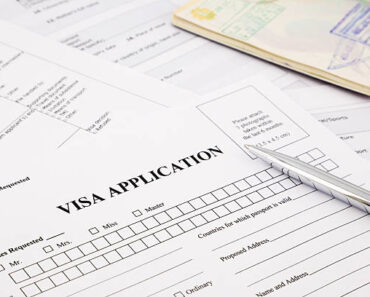This post was most recently updated on April 29th, 2019
A visa is an endorsement made on your passport that allows you to enter or stay in a country for a specific period of time. Generally, foreign nationals wishing to enter the United States of America must obtain a visa. The R2 Visa is just one of many visas available to non-us citizens.
There are different types of visas. There are long-term and short-term stay visas. Visas also come in categories, depending on the kind of traveler you are and your reason for traveling.
Travelers wishing to enter another country must generally apply in advance sometimes in person at a consular office, by mail or over the internet. As a visa applicant, you will need to establish that you meet all requirements to receive the category of visa for which you are applying.
Types of Visas for U.S Travel
In the U.S, the visa directory is alphabetized from A to V, with each letter representing a category or type. For instance, A1-3 visas are issued to diplomats and foreign government officials. F-1 visas are most commonly granted to international students to study in the U.S. This type of visa is given to individuals who have been accepted into an accredited university or college in the US to pursue academic studies or English language program.
There are mainly two types of immigration visas: Non-immigrant visas for a temporary stay in the country and Immigrant visas for a permanent stay in the country. There are over 60 types of non-immigrants visas available for international citizens.
What is an R2 Visa?
We have previously talked about theR1 visa. What it is and how to get it. Incidental to that is the R2 visa.
An R2 visa is a US temporary visa that authorizes the spouse and unmarried child (below 21 years) of an R1 visa holder to enter into the United States. Also, a person accompanying or joining the R-1 religious worker in the U.S is categorized under R2 status. The R2 status holder(s) can stay in the country as long as the R1 holder remains in legal status. In other words, an individual loses his/her R-2 status once the principal R-1 person loses lawful status.
We’ve said before that the R1 visa is a non-immigrant religious work visa issued to the following types of people-
Members of religious a group or community who have an authentic nonprofit, religious institute in the United States;
Aliens entering the US to work exclusively as the minister of a religious community or group;
US nonprofit religious organizations that recruit alien religious workers in various religious vocations, including religious instructors, liturgical workers, missionaries, catechists, etc.
What can I do on an R2 Visa?
With an R2 visa, are permitted to study while in the United States, but are not authorized to accept employment. Under any circumstances, people with this visa are not allowed to earn income in the US. If you wish to work in the country, you must obtain a work visa which is a temporary approval to live and work in the country. You may also apply for a Green Card while on R2 status.
Anyone wishing to change the purpose of their visit while resident in the US on an R2 visa has to change or adjust their visa status. For this purpose, the R2 visa holder must file Form I-360 (application for special immigrant) and Form I-485 (application for Adjustment of Status).
How long does the R2 Visa last?
The initial R-2 visa may be granted for a period of up to three years. If the carrier wishes to stay longer, they can apply for an extension in which case, the applicant must submit Form I-129 (petition for a nonimmigrant worker extension) to the USCIS. USCIS is the U.S. Citizenship and Immigration Services- the federal agency tasked with overseeing the lawful immigration of foreign nationals who are temporarily or permanently settling in the United States.
Generally, a person’s stay may be extended for a period of up to two years. The total period of stay for a person holding R2 dependent visa may not exceed five years.
Who can Sponsor an R2 visa?
The holder of an R1 visa is able to sponsor family members (a spouse and up to 4 dependent children under 21) or other persons accompanying, by virtue of his status.
How do I apply for an R2 visa?
There are various steps to apply for a visa. The order of these steps and how you complete them may vary at the U.S. Embassy or Consulate where you apply. Consult the instructions available on the embassy or consulate website where you will apply.
Generally though you need the following.
- Fill out a Nonimmigrant Visa Electronic Application (DS-160) Form. You can access it here.
- A passport valid for travel to the United States with a validity date at least six months beyond your intended period of stay in the United States.
- You will upload your photo while completing the online form DS-160. All photos must be in a particular format specified on the website.
- A receipt showing payment of your US$190 non-refundable nonimmigrant visa application processing fee, paid in local currency. If a visa is issued, there may be an additional visa issuance reciprocity fee, depending on your nationality. Check the embassy’s website in your country to find out if you must pay a visa issuance reciprocity fee and what the fee amount is.
- The applicant must schedule an appointment for the visa interview at the Embassy/Consulate. While interviews are generally not required for applicants of certain ages, consular officers have the discretion to require an interview of any applicant, regardless of age.
Additionally, a person applying for an R2 visa must have the following documents-
- All documents required for the R-1 visa they want to attach to. (Read How to get R1 visa)
- Original birth certificates for each dependent child. Note: children must be below 21 years old and unmarried.
- Marriage registration certificate of the spouse.
- Proof of a marital relationship, such as wedding ceremony photos, etc.
- A fine quality photocopy (all 36 pages) or the original of the spouse’s passport.
- Evidence of financial support. This is very important as an R1 holder must demonstrate that they will be able to financially support their family in the United States. Remember, R2 holders are allowed to study while in the United States, but are not authorized to accept employment.
- The copy of the contract between the employer and the R1 religious worker in the US.
When the visa is approved you, will be informed how your passport with visa will be returned to you. Review the visa processing time, to learn how soon your passport with visa will generally be ready for pick-up.




